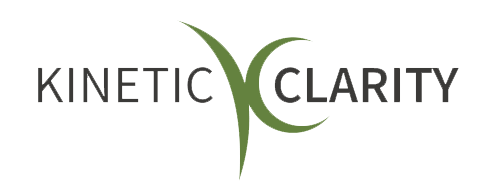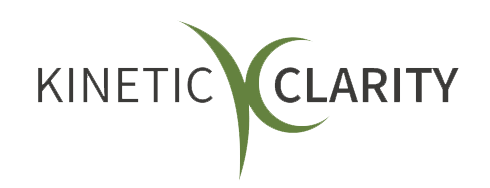An Honest Self-Assessment for Leaders: Importance, Benefits and Tips
Give yourself the GIFT of grace and space - and Don’t Let Yourself Off The Hook

We’ve been talking about year-end reviews for leaders this month, sharing how to celebrate your successes and how to fail forward. Slowing down and turning inward is a normal, natural thing to do this time of year which makes it a great time to self-reflect.
The turning of the year is a marker for most people to wrap things up, close out financials, and put things on pause. I encourage my clients (and myself) to carve out time to reflect, assess, and review the year. It’s important to make time to celebrate your successes and make your failures count for something.
As you think about all you did and didn’t accomplish this past year, reflecting on why and how you achieved what you did is a way to expand and accelerate your growth as a leader. It isn’t easy to look at yourself honestly; in fact, it may be one of the more vulnerable things you can do. But as Brené Brown, the creator of Dare to Lead™, says, “Vulnerability is our most accurate measure of courage”.
In this blog post, we’ll take a closer look at honestly evaluating ourselves and our job performance. You will learn:
- The importance of self-assessments
- Benefits of self-assessments
- How to self assess
- Steps you can take when self-assessing
The Importance of Self-Assessments
You’re probably very familiar with self-assessments. After all, many organizations have an annual round of reviews for leaders and employees.
Some assessments are too vague to be anything more than a simple nod to the idea of a review. Others, however, are valuable and helpful to the organization as well as the person taking the assessment. For example, knowing the outcome of your team’s assessments can provide insights into their skills and capabilities. The assessments can also help inform development and training plans.
What about you? Outside of the assessments provided by your organization, have you ever thought about a personal self-evaluation?
As a leader, it’s important to take time and evaluate past events, both professionally and personally. Why?
Ultimately, reflecting over the year coming to a close is a grounding exercise. Throughout the year, you’ve had highs and lows; you’ve succeeded in some places, and missed the mark in others. All these events have touched you in some way and made you who you are today, the day you’re reading this.
Benefits of Doing a Self-Assessment
Self-assessments ground you by:
Helping you improve your self-awareness
You can gain a greater understanding of your strengths, weaknesses, values, and preferences. This can help you make more informed decisions about your career paths and how to lead your teams effectively.
Enhancing your leadership skills
Identify areas where you may need to develop new skills or improve existing ones. For example, if your self-assessment pinpoints that you need to strengthen your communication skills, you know to develop those skills through training and practice.
Helping you own your actions
As an executive coach and as a leader myself, I’m a strong supporter of Dare to Lead™. Dr. Brené Brown talks about the importance of holding yourself and others accountable. A self assessment can help you hold yourself accountable for your actions and results, which can help foster a culture of continuous improvement within your organization.
Building your effectiveness
By becoming more aware of self, owning your actions, and working to grow your leadership skills, you become more effective as a leader. Not only is this true within your organization, in leading your team and achieving your career goals, but also in life.
Grounding yourself in your truth at the end of the year, recognizing what is to be celebrated, noted, and worked on, is an important step to prepare yourself for success in the year to come.
How to Get a Realistic Perspective on Yourself

It’s a natural inclination for humans to puff themselves up or shrink, to put their best face forward or to avoid conflict. We often seem to hustle for our worth regardless of the circumstances; it can feel uncomfortable to let others glimpse our vulnerabilities. But, unfortunately, it can become a habit that’s hard to break; in turn, it becomes difficult to take an honest look within.
We can’t get proper accountability with that approach, though. So, how can we find our blind spots? Just saying “be honest with yourself” may not help us get past our comfort zone. it doesn’t tell you how.
Be Candid About Your Successes
Achieving a goal can be wonderfully uplifting for your confidence, yet it’s also important to understand how your accomplishment came about. Was it really all just you that made it happen?
Consider who helped you and if you need to chalk any of your accomplishments up to luck (being in the right place at the right time). It’s also informative to re-examine areas your work went off the rails; how did you get it back on track?
Having success doesn’t mean you have reached your peak in a given situation. On the contrary, you can still learn from your successes, because there’s always room to improve and grow.
Look At Yourself From Another Viewpoint
Try putting yourself in other people’s shoes to get an outside view of yourself. Realistically, how would you evaluate yourself as a co-worker or leader? What would you say about your work performance?
Support your evaluation with examples. When you look at yourself from the view of an outsider, you can’t make excuses about your inner life or what may have been happening personally.
This is the gift of emotional distance. An outsider doesn’t know your motivations, only the results of them.
Check That Your Actions Align With Your Goals
Think back to what your goals were for this past year. Did the way you approached your work support those goals? Was it aligned with your core values?
It isn’t always possible to notice in the moment how things you do may work against your goals. But hindsight can show you where your actions took you and if that destination was closer to or further away from where you had hoped to be.
Focus on Adjustment, Alignment, and Change
When you are open to being honest with yourself, you are bound to notice areas you can correct. Being honest in your assessment doesn’t mean you need to be hard on yourself; you aren’t a failure, and there are opportunities to improve some weaknesses.
Consider this the chance to get to know the real you. Learning to spot your weaknesses can go far in improving your leadership style. When you know where you aren’t strong, those are the areas you can delegate to others.
Wrapping It Up
I’ve talked about how important it is to self-reflect, and how this time of year is ideal. I’ve also offered suggestions on how to go deep by asking for feedback and shifting perspectives.
Now it’s time to ask the hard question: Is the way I see myself today a true reflection of myself? Have my internal saboteurs weighed in too much?
I recommend taking some time to learn about saboteurs and the power of positive intelligence.
As you’re reflecting over your past year, it’s the best time to ask yourself the tough questions you don’t typically think about. Ditch your saboteurs; while you don’t want to artificially boost yourself, you also don’t want to drag yourself down.
You have many wonderful charastics, and it’s beneficial to recognize and celebrate those. You also have some opportunities to improve, too. Open yourself up to making progress in those traits; learning to tweak your shortcomings and enhance your strengths shows that you are ready for new opportunities.
Changing yourself is almost never quick. However, a self assessment gives you the map you need to do so, with an “x” marking the spot. Have a wonderful holiday season, and a fantastic journey discovering the “you” you’re meant to be.












